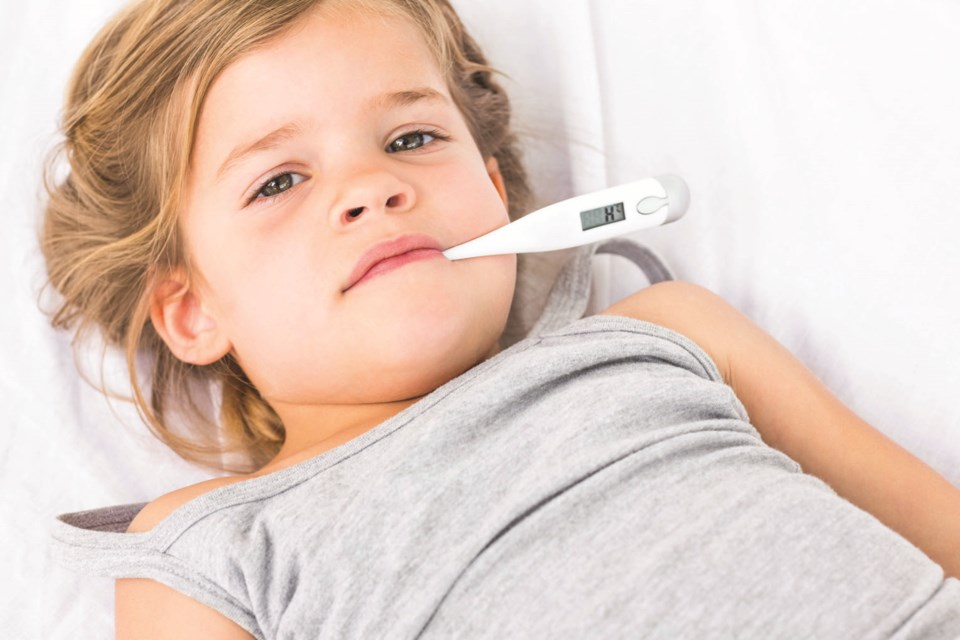Colorado health officials are promoting proactive measures after an unanticipated spike in cases of respiratory syncytial virus, or RSV, has heavily taxed hospital resources.
The Colorado Department of Public Health and Environment and Children’s Hospital Colorado held a zoom call on Wednesday to review case load data for RSV, flu and COVID.
“To put it mildly, we are seeing a very early and intense start to both the RSV and flu seasons,” Children’s Hospital Colorado Associate Chief Medical Officer Dr. Kevin Carney said. “Our emergency departments and inpatient units are managing patient volumes like we've never seen before.”
“RSV is a respiratory virus similar to flu and COVID that usually causes mild cold-like symptoms,” State Epidemiologist Dr. Rachel Herlihy said.
Along with a runny nose, symptoms exhibited from RSV include decreased appetite, coughing, sneezing, fever and wheezing.
“RSV can be serious … for infants and young children below the age of two,” she explained.
Additionally, older adults and people over 65 with underlying medical conditions often experience severe reactions, Herlihy said.
“For the last couple of weeks we've been at pretty high levels of RSV transmission,” she noted.
As of Nov. 5, Colorado has seen 554 RSV-related hospitalizations, with 95% of cases involving children.
State health officials reported that the number of patients seeking emergency and urgent care has averaged 30% higher than peak days during the typical RSV season from January through March.
“Our inpatient floors and intensive care units have been functioning at or above their maximum capacity for several weeks and our emergency departments are seeing a record volume of patients,” Carney said.
To make matters worse, health officials have also seen an increase in the levels of influenza transmission, Herlihy said.
“As of this week, we've had 92 hospitalizations and that's an increase from 49 last week,” she said.
Further, COVID cases have also been increasing recently, with a steep climb in the number of positive tests, Herlihy said.
“As of yesterday there were 320 hospitalizations in the state,” she said. “That is up from 218 just a week ago.”
Herlihy said the higher COVID numbers are attributable to new sub-variants.
To address the heightened demand for treatment, Carney said Children’s Hospital has taken a number of steps, including reallocating beds and expanding in-patient care areas.
“We've engaged additional contract team members, including travel nurses and respiratory therapists who can assist with the surge of patients across our system,” he said.
In terms of preventing transmission of respiratory viruses, Herlihy provided numerous common sense approaches.
“Teach children to cover their nose or mouth with a tissue or upper arm when they cough or sneeze,” she said.
Other tips Herlihy mentioned included not sharing cups or eating utensils and avoiding touching facial areas with unwashed hands. Also cleaning potentially contaminated surfaces, such as doorknobs, tables, handrails, is advisable.
“Stay home when sick with respiratory symptoms, including not visiting or interacting with people who may be immunocompromised or at high risk,” she said.
Both doctors preached the importance of flu and COVID vaccinations.
“We know that vaccination is the best strategy to prevent influenza and COVID 19, especially severe infections,” Herlihy explained. “You can get both your influenza vaccine and a COVID vaccine including the new Omicron dose at the same visit.”
Carney said parents who suspect their children have contacted RSV should immediately contact their physician to discuss treatment courses.
“With the upcoming holidays. It's important to be mindful of playdates, family and holiday events and to take precautions beforehand and stay home if you're sick,” he said.



